The 14th Invest in ME Research Biomedical Research into ME Colloquium 2025
Investigating the Mechanisms of Myalgic Encephalomyelitis: From Pathogenesis and Aetiology to Treatment Innovation – Integrating Systems Biology and Clinical Research
#BRMEC14
Speaker at #BRMEC14
The 14th International Biomedical Research into ME Colloquium takes place at the Wellcome Genome Campus, UK, during 28-30 May. The #BRMEC14 colloquium brings together leading international scientists and clinicians focused on sharing knowledge and collaborating to advance knowledge regarding the pathogenesis and aetiology of ME.
We are delighted to announce that Professor Douglas D. Fraser will be presenting at the upcoming colloquium.
Douglas D. Fraser
is renowned for his groundbreaking work in biomedical research, with a particular focus on immunology and infectious diseases. His insights into biomarker discovery and validation will significantly enhance our exploration of complex diseases, including ME/CFS. Professor Fraser serves as a Professor and Clinician Scientist in Paediatric Critical Care/Trauma Medicine at Western University in London, Ontario, Canada. As a Fellow of the Royal College of Physicians and Surgeons of Canada, he has made substantial contributions to the medical field. Leading the Translational Research Centre, a human tissue biobank with over 15 years of continuous operation, Professor Fraser has been instrumental in bridging the gap between laboratory research and clinical practice.
Advancing Diagnostic Innovations
Professor Fraser's research is centred on uncovering signalling pathways and identifying diagnostic and prognostic
biomarkers for a range of conditions. Utilising advanced multiplex technologies, his work aims to detect critical
biomarker profiles that facilitate early disease detection, monitoring, and therapeutic intervention. Through techniques
such as Proximity Extension Assay and Luminex Assay, his team has discovered novel proteins that improve diagnostic
precision and shed light on disease mechanisms.
At BRMEC14, Professor Fraser will discuss how these innovative technologies can transform diagnostic processes, enhance patient outcomes, and pave the way for precision medicine. His presentation aligns seamlessly with the colloquium's mission to translate research findings into practical clinical applications.
Implications for ME/CFS Research
Professor Fraser's expertise in immunology and infectious diseases offers valuable insights for ME/CFS research.
Given the role of immune system dysfunction in ME/CFS and the potential for infectious triggers, his work on systemic
inflammation and biomarker discovery is particularly relevant. Additionally, his research on long COVID and
drug repurposing provides a unique perspective on chronic infections and their biomarkers, which will be explored
during the chronic infection and biomarkers sessions.
Professor Fraser's clinical experience ensures that his findings are not only scientifically robust but also
clinically applicable. His collaborative approach will enrich the multidisciplinary discussions at BRMEC14,
fostering new ideas and strategies in biomarker research.
We eagerly anticipate Professor Douglas D. Fraser's contributions to BRMEC14 and the fresh insights he will bring
to the study of complex diseases such as ME/CFS.
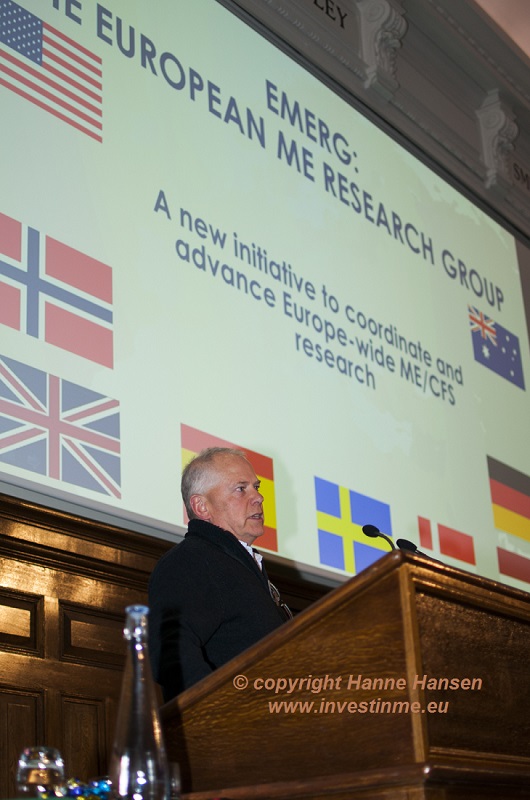
Research Leader, Quadram Institute Bioscience, Norwich Research Park, UK
Professor Simon Carding
UK
Upon completing postgraduate work at the Medical Research Council’s Clinical Research Centre in Harrow,
Professor Carding “emigrated” to the USA to take up a postdoctoral position at New York University School of Medicine,
and then at Yale University as a Howard Hughes Fellow in the Immunobiology Group at Yale University.
While
at Yale an interest in gamma-delta (γδ) T cells was acquired working closely with Adrian Hayday on molecular genetics and then
with Prof. Peter Doherty to establish their role in (viral) infectious disease.
He left Yale after five years to take up a faculty position at the University of Pennsylvania in Philadelphia where he
developed a research interest in mucosal and GI-tract immunology, performing studies in germfree mice with Prof John Cebra
that helped establish
the role of gut microbes in the aetiology of inflammatory bowel disease (IBD).
After 15 years in the USA, he returned to the UK to take up the Chair in Molecular Immunology at the University of Leeds
where he established a new research
programme on commensal gut bacteria and Bacteroides genetics leading to the development of a Bacteroides drug
delivery platform that is being used
for developing new interventions for IBD and for mucosal vaccination.
In 2008 he was recruited by UEA and IFR to develop a gut research programme, taking up the Chair of Mucosal Immunology
at UEA-MED and the position of head
of the Gut Biology Research Programme at IFR, which later became part of the Gut Health and Food Safety (GHFS) Programme.
GHFS research covers a broad area of gut biology including epithelial cell physiology, mucus and glycobiology, mucosal immunology,
commensal microbiology, foodborne bacterial pathogens, and mathematical modelling and bioinformatics.
The success of this programme has led to the establishment of the Gut Microbes and Health research programme
that is integral to the research agenda of The Quadram Institute.
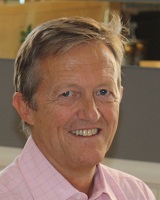
Research Director, Coordinating Research Centre, Bispebjerg and Frederiksberg Hospital, Denmark
Co-chair European ME Research Group
Dr Jesper Mehlsen
Denmark
Dr Jesper Mehlsen graduated as a medical doctor in 1979 and finished his specialist training in 1990.
He has published more than 140 scientific papers in peer reviewed journals, mainly on the autonomic nervous system and more recently
on complex diseases possibly resulting form HPV-vaccination.
For more than 35 years, he has worked clinically and in research with dysfunction of the autonomic nervous system.
Such dysfunction may lead to symptoms from a number of different organs often dominated by diminished control of blood pressure
and heart rate.
Over the past 5 years, he has worked clinically and in research with patients who suspect side effects due to HPV vaccination to
be the cause of a number of symptoms, common to those seen in chronic ME.
Dr Mehlsen is co-chair of the European ME Research Group (EMERG).
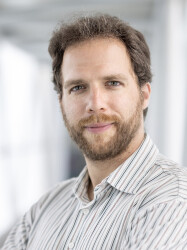
Tamas Korcsmaros
UK
Dr Tamas Korcsmaros is a systems biologist working with both computational and experimental approaches to study
signalling networks in the gut.
For 15 years, he has been been working in the field of intra- and inter-cellular signalling networks and the regulation of autophagy,
a key cellular process for maintaining health and fight diseases.
He is particularly interested in how cell-cell and cell-microbe interactions affect intestinal homeostasis,
and how one could use precision medicine to tackle current challenges to treat patients with inflammatory bowel disease.
In his group they have developed gap-filling computational resources and applied experimental novel systems,
such as organoids, to achieve these goals.
Besides leading his research group that focuses on improving our understanding on the pathomechanisms of IBD, he is also co-leading the
NIHR Imperial BRC Organoid Facility to establish patient-specific multi-omics studies for various complex diseases.
REFERENCES
References

David Price
UK
Professor David A Price MRCP DPhil DTM&H FAoP FLSW FRSB graduated with double first class honours
in medical sciences and pathology at the University of Cambridge and completed his clinical training at
King's College Hospital London.
He practised internal medicine, specialising in infectious and tropical diseases,
before pursuing a doctorate in molecular immunology at the University of Oxford.
After further academic clinical appointments,
his research was conducted with fellowship support at the NIH Vaccine Research Center.
He was appointed as Chair of Infection
and Immunity at Cardiff University School of Medicine in October 2007.
His research program focuses on the development and
implementation of advanced biotechnologies to characterise immune responses against globally relevant pathogens, such as
HIV-1 and SARS-CoV-2.
REFERENCES

Associate Professor Jos Bosch
Netherlands
In 2012 he was appointed associate professor in the Department of Psychology, section Clinical Psychology.
His research investigates the psychobiology of medical disorders, with the aim to understand and mitigate the impact of disease.
His dual expertise in psychology and biology allows him to approach this topic in a genuinely interdisciplinary manner,
by integrating methods and concepts from both fields, and apply these to experimental laboratory studies,
clinical investigations, and epidemiological analyses. More recently hsi work has expanded to include Data Science and Artificial
Intelligence (AI) as a source of novel approaches to the analysis and modification of human biology and behaviour.
The latter program of research is funded by two H2020 consortium grants, of which he isa lead and a coordinator,
and involves intensive collaborations with groups accross continental Europe, the UK, and the US.
Since 2019 he became Associate Editor of Health Psychology Review, having previously acted as associate/senior editor for Brain, Behavior & Immunity (2011-2014), Psychological Bulletin (2010-2013), and Health Psychology (2010-2015).
In 2018 he was appointed Program Leader of the AMC/VUmc research institute ‘Amsterdam Public Health' (APH), Divsion of Mental Health (https://www.amsterdamumc.org/research/institutes/amsterdam-public-health.htm). In 2020 I was reappointed for 2 more years.
In 2023 Jos was awarded a grant of more than seven million euros to commence new biomedical research into ME/CFS.
Further reading:
Amsterdam UMC leads international consortium in the search for treatment for ME/CFS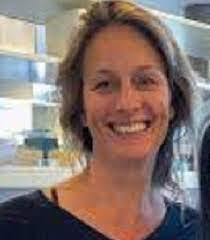
Research Unit for Molecular Medicine, Department of Clinical Medicine, Aarhus University, Denmark
Associate Professor Rikke Katrine Jentoft Olsen
Denmark
Rikke's research group has a longstanding interest in inborn errors of mitochondrial metabolism with special focus on fatty acid oxidation disorders. We integrate genetic diagnostics of affected families with research into cell pathological mechanisms and novel treatment modalities in the form of mitochondrial vitamins/co-factors and anaplerotic compounds for the tricarboxylic acid cycle. In recent years, we have initiated research programs to understand the role that mitochondria may play in ME.
Besides science, Rikke KJ Olsen is an active member of the Neonatal Screening Program for inborn errors of metabolism in Denmark and board member of international scientific organisations within fatty acid oxidation disorders and ME/CFS.

Full Chair Professor in Analytical Chemistry and Neurochemistry at the Department of Chemistry, Uppsala University, Sweden
Professor Jonas Bergquist
Sweden
Professor Begquist has a background as MD, Associate Professor of Clinical Neuroscience , Sahlgrenska University Hospital and the University of Gothenburg. Since 1999 , he has been a researcher in Uppsala, Sweden, and in 2005 was appointed professor of analytical chemistry and neurochemistry at the Department of Chemistry - BMC , Uppsala University. From 2011 he worked also as an adjunct professor of pathology at the University of Utah, Salt Lake City, Utah, USA.

Medical specialist in Immunology,
Head of Gastrointestinal Immunology research group
Department of Pathophysiology and Allergy,
Medical University of Vienna, Austria
Associate Professor Eva Untersmayr-Elsenhuber, MD, PhD
Austria
Dr. Eva Untersmayr-Elsenhuber Associate Professor of Pathophysiology and Allergy Research
at The University of Vienna.
Her research interests are
Immunology and Microbiology, Comparative Immunology and Oncology, Pathophysiology.
In 2011, Dr.in Eva Untersmayr-Elsenhuber completed her specialist training.
Since then, Dr.in Untersmayr-Elsenhuber has worked as a specialist
and associate professor at the ” Institute of Pathophysiology and Allergy Research at the Medical University of Vienna.
In 2012, Dr.in Eva Untersmayr-Elsenhuber completed her part-time doctoral studies in natural sciences at the University of Salzburg and received
her doctorate (Dr. rer. nat.).
She is the author of more than 40 internationally acclaimed articles published in renowned journals, which have so far been
cited more than 1000 times by other authors in publications.
For her work in the field of food allergy, Dr.in Untersmayr-Elsenhuber has received numerous prizes such as the Pirquet Prize,
the most important prize in the field of allergy research of the Austrian Society for Allergology and Immunology,
the Theodor Billroth Prize of the Medical Association of Vienna and the Vienna Chamber of Commerce Prize 2014.
In addition, Dr Eva Untersmayr-Elsenhuber has led and managed numerous competitively funded research projects on food allergy, gastrointestinal
immunology and oncology since 2005. She is a member of national and international committees such as the Austrian and European Societies for
Allergolgy and Immunology and the Collegium Internationale Allergologicum.
Dr. Untersmayr-Elsenhuber has participated in numerous science communication activities for years, such as the production of information brochures,
the Children’s University, the Long Night of Research and Science at the VHS Vienna.
(with grateful thanks to https://www.praxis-neustift.com/en/prof-ddr-eva-untersmayr-elsenhuber/)
Links:
Researchgate
Presenter to be confirmed
Details will be announced shortly.

Presenter to be announced
Details will be announced shortly.

Presenter to be announced
Details will be announced shortly.
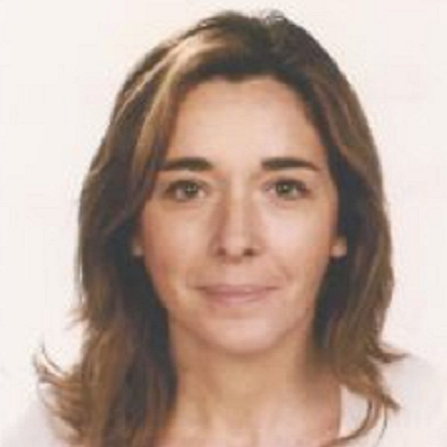
Universidad Católica de Valencia “San Vicente Mártir”, Spain
Elisa Oltra
Spain
Dr. Elisa Oltra is a professor of Cell and Molecular Biology at the Universidad Católica de Valencia “San Vicente Mártir” where she also
works as a researcher in the area of stem-cell and cancer.
She obtained an M.S. degree in Biochemistry at the Universitat de Valencia (Spain) and later earned her PhD in Biochemistry, Cell and Molecular Biology at the
University of Miami, FL (USA) where she stayed for her post-doctoral training and later, as Senior Scientist till 2006 when she moved
back to Spain. During her studies at the University of Miami she identified alternative 5´UTR sequences involved in regulating cell-cell
communication through mechanisms of differential connexin43 expression in the heart.
She also isolated a novel essential protein (Ini) and demonstrated its participation in mechanisms of transcription and splicing.
In 2009 she started a project to investigate the molecular basis of Fibromyalgia having identified at present irregularities
in RNAseL expression and miRNAs profile changes in the participating patients which could lead to a deeper understanding of the disease.
In 2012 she joined the IVP Valencian Institute of Pathology, also at the Universidad Católica de Valencia where she is currently studying a specific
type of vesicles: the exosomes, as mediators of stem-cell based therapies.
She is also academic director of the first officially accredited Master degree in Biobanking in Europe in collaboration with the Spanish Network
of Biobanking at the Instituto de Salud Carlos III, Madrid (Spain).

University of Edinburgh, UK
Chris Ponting
UK
Christopher Ponting is a British computational biologist, specialising in the evolution and function of genes and genomes.
He is currently Chair of Medical Bioinformatics at the University of Edinburgh and group leader in the MRC Human Genetics Unit.
He is also an Associate Faculty member of the Wellcome Trust Sanger Institute, a Fellow of the Academy of Medical Sciences,
member of the European Molecular Biology Organisation and Fellow of the Royal Society of Edinburgh.
His research focuses on long noncoding RNA function and evolution, on single cell biology and on disease genomics.
Professor Ponting contributed to the Human Genome Project, and participated in sequence comparison for the mouse, chicken, dog,
opossum, and platypus Genome Projects.
He has also used comparative genomics to contribute directly to the understanding of chromatin structure
and the genetics of numerous conditions including asthma,obesity, Alzheimer's disease, retinitis pigmentosa,
muscular dystrophies, and Aicardi–Goutières syndrome.
Additionally, his lab is part of DecodeME, a genetic study to determine the potential causes of myalgic encephalomyelitis.
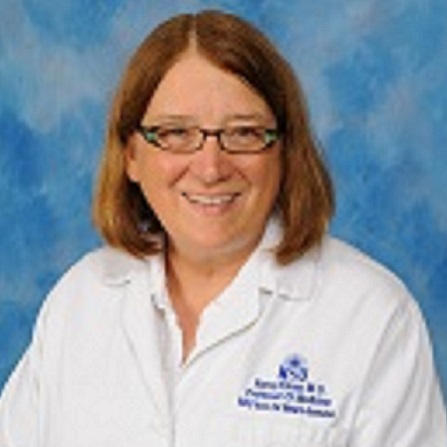
Nova Southeastern University, Florida, USA
Professor Nancy Klimas
USA
Director, Institute for Neuro Immune Medicine, Nova Southeastern University.
Director, Clinical Immunology Research, Miami VAMC
Professor of Medicine, Department of Clinical Immunology, College of Osteopathic Medicine, Nova Southeastern University
Chair, Department of Clinical Immunology, College of Osteopathic Medicine, Nova Southeastern University
Professor Emerita, University of Miami, School of Medicine
n for her research and clinical efforts in multi-symptom disorders, Myalgic Encephalomyelitis/Chronic Fatigue Syndrome (ME/CFS),
War Illness (GWI), Fibromyalgia, and other Neuro Immune Disorders. She is immediate past president of the International Association
for CFS and ME (IACFS/ME), a professional organization of clinicians and investigators, and is also a member of the VA Research Advisory
Committee for GWI, the NIH P2P CFS Committee, and the Institute of Medicine ME/CFS Review Panel. Dr. Klimas has advised three Secretaries
of Health and Human Services, including Kathleen Sabelius, during her repeated service on the Health and Human Services CFS Advisory Committee.
Dr. Klimas has been featured on Good Morning America, in USA Today and the New York Times.
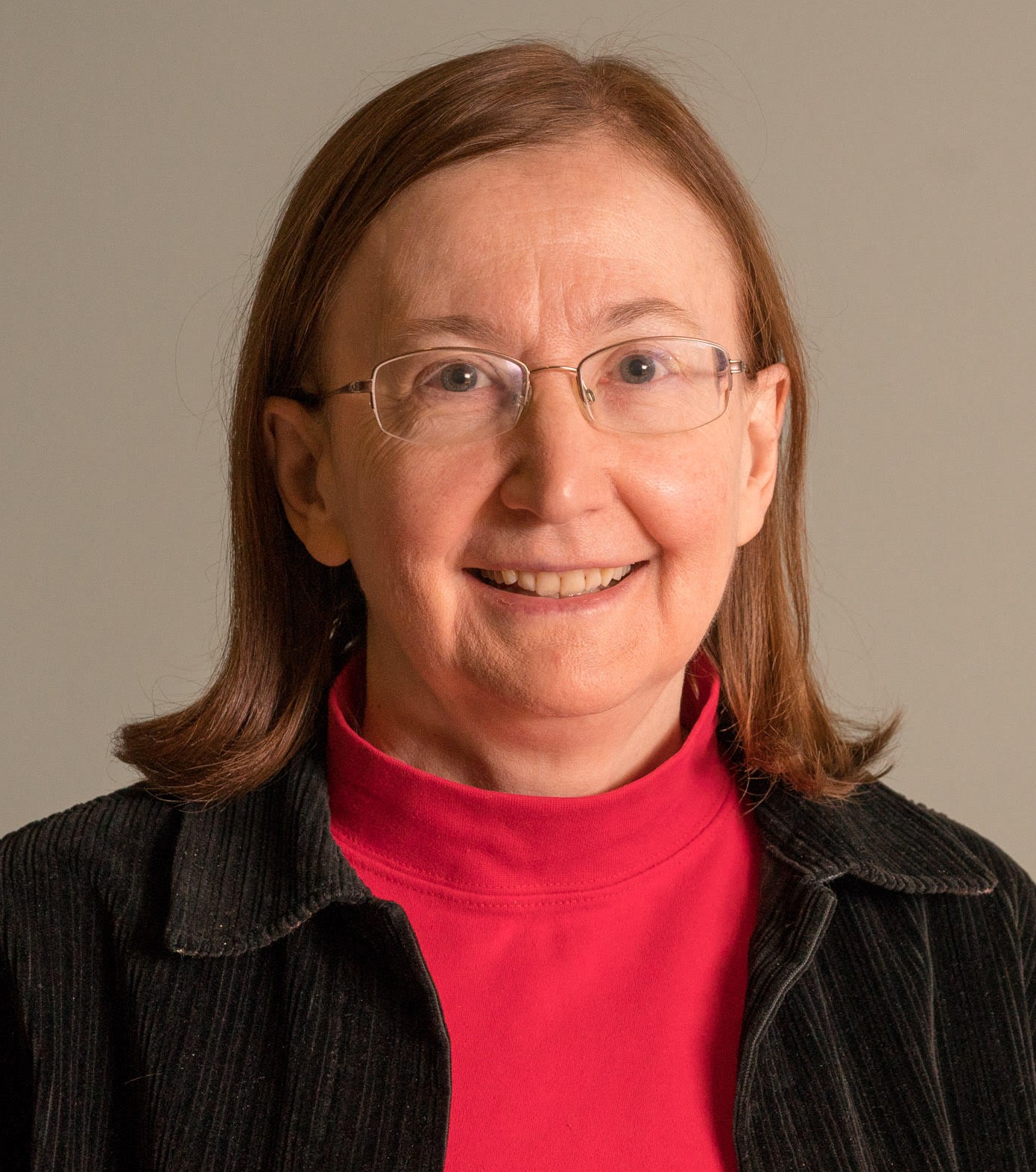
Liberty Hyde Bailey Professor, Department of Molecular Biology and Genetics, Cornell University, New York, USA
Professor Maureen Hanson
USA
Maureen Hanson is Liberty Hyde Bailey Professor in the Department of Molecular Biology and Genetics at Cornell University in Ithaca, NY. Previously she was on the faculty of the Department of Biology at the University of Virginia in Charlottesville and an NIH NRSA postdoctoral fellow at Harvard, where she also completed her Ph.D. degree. While most of her prior research has concerned cell and molecular biology in plant cells, she began a research program on ME/CFS after noting at a 2007 IACFS meeting the paucity of molecular biologists studying the illness. Her lab was part of the 2012 multicenter study organised by Ian Lipkin's group at Columbia University to assess the actual role of XMRV in ME/CFS. Dr. Hanson has a current project to examine the microbiome of ME/CFS patients and controls, in collaboration with Dr. Ruth Ley (Cornell Microbiology) and Susan Levine, M.D. (Manhattan, NY). Dr Levine is also collaborating with Dr. Hanson on an immune cell gene expression project that involves Dr. Fabien Campagne and Dr. Rita Shaknovich at Weill Cornell Medical School in New York City. Dr. Hanson's third project concerns analysis of blood samples from individuals performing a two-day cardiopulmonary exercise test at Ithaca College under the supervision of Dr. Betsy Keller.

Department of Biochemistry and Molecular Biology, University of Melbourne, Victoria, Australia
Australia
Chris Armstrong, PhD, performs research using metabolomics to observe biochemical alterations in ME patients. He began his work in this field at the University of Melbourne, beginning a PhD project to apply metabolomics to study myalgic encephalomyelitis and published his first ME/CFS metabolomics study on blood and urine in 2015. Chris also worked with IiMER-funded PhD Fane Mensah at UCL.
Since then Chris has set up collaborative efforts to apply metabolomics to immunological experiments on ME, observing how metabolism may relate to immune cell function. He has also focused on longitudinal research in ME while looking to extend metabolic capabilities across the field of ME to help collate different patient groups.
Chris has presented at the #BRMEC11 colloquium in 2021.
Other Links

............................
Exxxxxxxxxxxxxxxxx
xxxxxxxxxxxxxxx
,,,,,,,,,,,,,,,,,,,,,,,,,,,,,,,,,,,,,,,,,,,,,,
..................
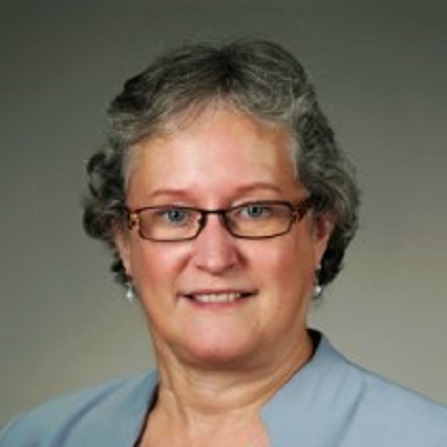
Dr Vicky Whittemore
USA
Dr. Whittemore is a Program Director in the Synapses, Channels and Neural Circuits Cluster. Her interest is in understanding the underlying mechanisms of the epilepsies including the study of genetic and animal models of the epilepsies.
The major goal is to identify effective treatments for the epilepsies and to develop preventions. Dr. Whittemore received a Ph.D. in anatomy from the University of Minnesota, followed by post-doctoral work at the University of California, Irvine, and a Fogarty Fellowship at the Karolinska Institute in Stockholm, Sweden.
She was on the faculty of the University of Miami School of Medicine in The Miami Project to Cure Paralysis prior to working with several non-profit organizations including the Tuberous Sclerosis Alliance, Genetic Alliance, Citizens United for Research in Epilepsy (CURE), and the National Coalition for Health Professional Education in Genetics (NCHPEG).
She also completed a four-year term on the National Advisory Neurological Disorders and Stroke Council.
Other Links

Stichting Cardio Zorg, Netherlands
Linda van Campen
Netherlands
C. (Linda) M.C. van Campen is a cardiologist involved in clinical research and clinical care of adolescents and adults with ME since 2009. She has been practicing cardiology since 1999 and has focused on clinical care and research for patients with Myalgic Encephalomyelitis since 2009.
Dr. van Campen has contributed significantly to the understanding of ME, particularly in relation to orthostatic intolerance, cerebral blood flow, and cardiac function. Linda van Campen has made several notable contributions to the field of Myalgic Encephalomyelitis research, particularly in understanding the physiological abnormalities associated with the condition. Van Campen's research has consistently demonstrated that ME patients experience a significant reduction in cerebral blood flow during orthostatic stress, such as tilt table testing, even in the absence of hypotension or tachycardia. This highlights a key physiological dysfunction in ME patients. She has extensively studied orthostatic intolerance (OI), a hallmark symptom of ME/CFS, and its relationship to cardiac function. Her work has identified abnormalities such as reduced stroke volume index (SVI) and cardiac index (CI) during tilt testing in ME/CFS patients. Van Campen also explored the phenomenon of orthostatic chronotropic incompetence—an impaired heart rate response to standing—in ME/CFS patients, further elucidating the cardiovascular challenges faced by this population. In collaboration with others, van Campen has documented cognitive declines following orthostatic stress in ME patients, linking reduced cerebral blood flow to impairments in cognitive function. This research underscores the systemic impact of OI on brain health. Her work has drawn parallels between ME and long COVID, particularly in shared symptoms like orthostatic intolerance and reduced cerebral blood flow. This research has helped bridge understanding between these two conditions. She has authored numerous studies exploring these topics, including:
- The effects of tilt table testing on ME/CFS patients
- The role of compression stockings in improving cardiac output and cerebral blood flow
- The impact of long-haul COVID-19 on orthostatic intolerance compared to ME
Dr. van Campen's research includes:
- Studies on the abnormal cardiac and cerebral blood flow responses in ME patients
- Investigations into therapeutic interventions such as compression stockings and vitamin B12 treatments for ME
- Clinic
Stichting CardioZorg specialises in diagnosing and treating cardiovascular complications in ME patients, as well as conducting related clinical research.

Professor of Cardiology/ Senior Consultant, Karolinska University Hospital and Karolinska Institute, Stockholm, Sweden
Artur Fedorowski MD, PhD, FESC
Sweden
Dr Artur Fedorowski is a leading cardiologist and researcher specialising in cardiovascular autonomic dysfunction, syncope and orthostatic intolerance.
He is a Professor of Cardiology at the Department of Medicine, Solna, Karolinska Institutet, Stockholm, Sweden, and a Senior Consultant as well as Head of the Syncope and Dysautonomia Unit at Karolinska University Hospital. He holds an MD and PhD from Wrocław Medical University in Poland, where he also completed specialist training in internal medicine and cardiology. Additionally, he pursued postdoctoral research in cardiovascular medicine at Lund University, Sweden, where he has served as an Associate Professor since 2013.
Dr Fedorowski's research focuses on cardiovascular autonomic dysfunction, syncope mechanisms (including reflex syncope and orthostatic hypotension), postural orthostatic tachycardia syndrome (POTS), and autoimmune cardiovascular diseases. He has published over 170 peer-reviewed articles and contributed to multiple books in these fields. His work has been recognised internationally, including his membership in expert groups such as the European Society of Cardiology's Task Force for Syncope Guidelines and the NIH Expert Group on POTS. Dr Fedorowski is also an associate editor for several prestigious journals and a reviewer for approximately 60 medical publications.
References

Brigham and Women's Hospital, Harvard Medical School, USA
Peter Novak
USA
Dr Peter Novak is an Associate Professor of Neurology at Brigham and Women's Hospital, affiliated with Harvard Medical School. He serves as the Chief of the Division of Autonomic Neurology and Director of the Autonomic Laboratory. Dr Novak is a board-certified neurologist and autonomic specialist with expertise in autoimmune and small fiber neuropathies, postural orthostatic tachycardia syndrome (POTS), and multiple system atrophy.
After graduating from medical school in Bratislava, Slovakia, Dr Novak completed his neurology residency at Ohio State University and pursued postdoctoral studies in cardiovascular and autonomic research at several institutions, including Charles University, University of Montreal, McGill University, and Mayo Clinic.
Dr Novak has made significant contributions to the field of autonomic neurology, including the identification of two new syndromes related to orthostatic intolerance. His research has led to improved diagnostic capabilities for patients previously thought to have psychiatric illnesses or who lacked a clear diagnosis. He has authored over 70 scientific papers.
In 2021, Dr Novak received the BRIght Futures Prize for his innovative project "Using Smartphone Pictures to Diagnose Nerve Damage," which aims to improve the accessibility of testing for small fiber neuropathy.
Further Information:

Professor of Mathematics, North Carolina State University, USA
Mette Olufsen
USA
Professor in the Department of Mathematics, North Carolina State University, Raleigh, NC.
Primary research interests include bio-mathematics, mathematical modeling, and combining models with actual data.
Professor Olufsen's interest is in studying dynamics of the cardiovascular, respiratory, and inflammatory systems using fluid
dynamics and system level models.
She has a PhD degree in applied and industrial mathematics and a MS degree in mathematics and computer science from Roskilde
University, Denmark.
Mette S. Olufsen is a professor in the Department of Mathematics at North Carolina State University in Raleigh, NC.
She specialises in mathematical biology, with a focus on cardiovascular physiology, inverse problems, parameter estimation,
and differential equations.
Dr. Olufsen earned her PhD in applied and industrial mathematics and her MS in mathematics and computer science from Roskilde
University, Denmark.
She joined North Carolina State University as an assistant professor in 2001 after spending three years in Boston.
Her primary research interests include bio-mathematics, mathematical modeling, and combining models with actual data.
She is particularly interested in studying the dynamics of cardiovascular, respiratory, and inflammatory systems using
fluid dynamics and system-level models.
Professor Olufsen has published extensively in peer-reviewed journals and has contributed to numerous books in her field.
Her current work focuses on patient-specific modeling of cardiovascular and inflammatory dynamics, as well as sensitivity
analysis and parameter inference.
Throughout her career, Dr. Olufsen has collaborated with researchers across disciplines and has been recognised for her
contributions to mathematical biology and physiological modeling. Her expertise in developing mathematical models
to understand complex biological systems has made her a respected figure in the field of applied mathematics
and computational biology.
Further Information:

Paediatric Critical Care/Trauma Medicine at Western University in London, Ontario, Canada
Douglas D. Fraser
Canada
Professor Fraser, a Fellow of the Royal College of Physicians and Surgeons of Canada, holds a position as
Professor and Clinician Scientist in Paediatric Critical Care/Trauma Medicine at Western University in London, Ontario.
He completed his MD/PhD in the Department of Physiology and Biophysics at the University of Calgary, Alberta,
receiving a Canadian Institutes of Health Research Strategic Training Fellowship and several esteemed International
Research Awards from the American Academy of Pediatrics and the Society for Pediatric Research.
As Director of the Translational Research Centre, a human tissue biobank operating for over 15 years, Professor Fraser
has garnered multiple Research Innovation Awards and successfully filed numerous patents. He is also a Co-Founder and
Chief Medical Officer of NeuroLytixs, Inc., a diagnostics-based biotech company.
Professor Fraser's research focuses on identifying signalling pathways and diagnostics/prognostic biomarkers for
acquired brain injury, severe sepsis and COVID-19. His work includes profiling Long-COVID patients for proteome changes,
with particular emphasis on understanding the immune response.
Currently, he leads two International Multicentred Long-COVID
Research Programmes: "LC-Optimize" (Identification of Long-COVID Sub-Phenotypes to Optimise Patient Outcomes) and "LC-Statistic"
(Sudden Death Associated with Post-COVID Condition).

Professor of Medicine, Georgetown University Medical Centre, USA
James Baraniuk
USA
James Baraniuk, MD, is an Associate Professor with Tenure in the Department of Medicine at Georgetown University in Washington, DC[1][2]. He is also the Director of the Chronic Pain and Fatigue Research Center at Georgetown University[2]. Dr. Baraniuk received his medical degree from the University of Manitoba, Canada, in 1981[3]. He completed his internship at St. Thomas Hospital in 1982 and his residency at Duke University Medical Center[3]. Professor Baraniuk's research interests include Gulf War Illness, Chronic Fatigue Syndrome, and Mucosal Inflammation[5]. He has published extensively in these areas, with over 100 publications to his name[6]. His work focuses on understanding complex chronic conditions and their underlying mechanisms. At Georgetown University, Dr. Baraniuk leads research projects and clinical trials related to chronic pain and fatigue disorders[7]. He is recognised for his contributions to the field of medicine, particularly in the areas of migraine and chronic fatigue syndrome[4]. Throughout his career, Dr. Baraniuk has been cited by numerous researchers in his field, demonstrating the impact and relevance of his work in medical research[6][8]. His expertise spans various aspects of chronic illnesses, making him a respected figure in the medical community.
References:
- [1] https://gufaculty360.georgetown.edu/s/contact/00336000014RcpuAAC/james-baraniuk
- [2] https://me-pedia.org/wiki/James_Baraniuk
- [3] https://www.medstarhealth.org/education/fellowship-programs/rheumatology-georgetown-fellowship/faculty/baraniuk_james
- [4] https://migraineworldsummit.com/expert/james-baraniuk-md/
- [5] https://scholar.google.com/citations?user=1nkHbZ4AAAAJ&hl=en
- [6] https://www.researchgate.net/profile/James-Baraniuk
- [7] https://faculty.georgetown.edu/baraniuj/Site/2006-495.html
- [8] https://www.researchgate.net/profile/James-Baraniuk/4

Interim Head of Cellular Genetics and Senior Group Leader, Haniffa Group, Wellcome Sanger Institute, UK
Muzlifah Haniffa
USA
Professor Muzlifah Haniffa is a distinguished dermatologist and immunologist, currently serving as the Interim Head of Cellular
Genetics
and Senior Group Leader at the Wellcome Sanger Institute.
Born in Penang, Malaysia, she moved to the UK in the 1990s to pursue her
medical education, graduating from the University of Wales College of Medicine in 1999[1].
Prof Haniffa's groundbreaking research focuses on applying single-cell genomics technologies to understand tissue homeostasis,
immunity,
and disease
pathogenesis. She is a key figure in the Human Cell Atlas initiative, where she contributes significantly to decoding the development
and functional
maturation of the human immune system.
Her work has led to important discoveries in kidney cancer research and placental biology,
among other
areas.
Throughout her career, Prof Haniffa has received numerous accolades, including the Foulkes Foundation Medal in 2019 and election to
the Academy of
Medical Sciences in 2020. She is also a Wellcome Trust Senior Research Fellow in Clinical Science and a Professor of Dermatology and
Immunology at
Newcastle University. Prof Haniffa is known for her passion for mentoring and promoting diversity in science, actively contributing
to various
initiatives to support the next generation of researchers.
Further Information:

European Bioinformatics Institute (EMBL-EBI)
Aurelien Dugourd
USA
Aurelien Dugourd graduated from Heidelberg Medical University with a Computational Biology masters degree in 2015.
He joined Julio Saez-Rodriguez'' team at the JRC COMBINE lab
in Aachen as a PhD student and worked on the development of an hybrid mechanistic model, integrating gene regulation,
signaling pathways and
metabolomics data to explain disease phenotypes, help find new therapeutic targets and predict their potential effect based on a specific
patient profile. This project was part of the collaborative SyMBioSys ITN project, financed by the European Marie Sklodowska-Curie actions.
He is currently a senior post-doc/Staff Scientist leading the development and application of methods to extract interpretable mechanistic
insights from multi-omic
datasets. The focus is on leveraging prior knowledge, in the context of signaling and metabolism of complex diseases, such as cancer
and development of treatment resistance.
He works in collaboration with pharmaceutical partners, to support the development of novel cancer
treatments and better understand the development of resistances by bringing those methods closer to relevant industrial applications.
The goal of the Saez-Rodriguez group is to acquire a functional understanding of the deregulation of cellular networks in
disease and to apply this knowledge to develop novel therapeutics.
The group focuses on cancer, auto-immune and fibrotic disease.
Towards this goal, they integrate big (‘Omics’) data with mechanistic molecular knowledge into
statistical and machine learning methods, and share tools as free open-source packages.
Further Information:

Professeure de Biologie Computationnelle des Systèmes, Pôle de Biologie des Systèmes, MCD-CBI, Université de Toulouse III-Paul Sabatier - CNRS
Anna Niarakis
France
Dr Anna Niarakis is a Full Professor of Computational Systems Biology at the University of Toulouse III-Paul Sabatier,
affiliated with the Center of Integrative Biology and the Laboratory of Molecular and Cellular Dynamics. She holds a 4-year
delegation for research at INRIA- Saclay, in the group Lifeware.
Dr Niarakis has a broad scientific background in Biochemistry, Biology, Pharmaceutical Technology and post-doctoral
studies in Computational Systems Biology and Bioinformatics (ENS, Paris, Institut Gustave Roussy) with expertise in complex
human diseases, especially autoimmune diseases.
She is a co-leader of the Disease Maps consortium coordinating the COVID-19 Disease Map initiative, and she also leads the
Working Group “ Building Immune Digital Twins”, supported by the Research Data Alliance.
Dr Niarakis has significant expertise in academic teaching and mentoring, course design and management and is also very active
in organizing and participating in international summer and winter schools of Computational Systems Biology.
She is the main co-organizer and the leading instructor of the Wellcome Trust Advanced Course "Computational Systems Biology
for Complex Human Disease: From Static to Dynamic Representations of Disease Mechanisms" :
Courtesy https://cbi-toulouse.fr/eng/equipe-niarakis
Further Information:

Friedrich Schiller University Jena, Germany
Christian Puta
Germany
After completing a diploma in sports science with a focus on prevention and rehabilitation,
he received his doctorate in 2007 at the Faculty of Social and Behavioral Sciences of the Friedrich Schiller University Jena.
In 2017, the same faculty awarded the venia legendi for sports medicine and health promotion.
The dissertation and the habilitation were awarded the DOSB Science Prize, the third prize and the second prize.
As a post-doc he spent a month at the Uit The Arctic University of Norway in Tromsø.
In 2023 I received an adjunct Professor of Sports Medicine and Health Promotion at the Friedrich Schiller University Jena.
He is currently a member of the scientific advisory board of the Federal Institute of Sport Science (since 2018)
and university director of the Center for Interdisciplinary Prevention of Occupational Diseases of the
Friedrich Schiller University Jena (since 2019).
Since 2023 he has been a member of the Center of Sepsis Control and Care (CSCC) at the University Hospital Jena.
Since 2024 he has been affiliated at the Department for Internal Medicine IV (Gastroenterology, Hepatology and Infectious Diseases),
Jena University Hospital, Jena, Germany.
Further Information:
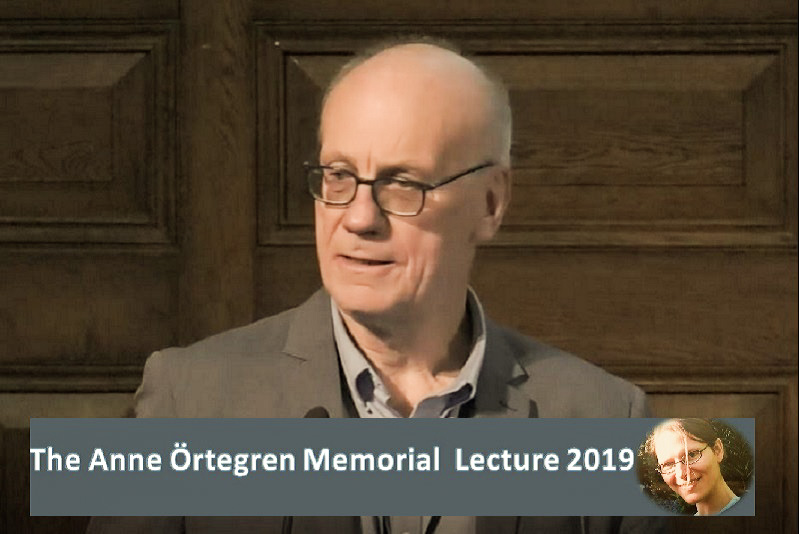
Professor of Pharmacology at the Wolfson Centre for Age Related Disease, Kings College London, UK
Stuart Bevan
UK
Professor Stuart Bevan is Professor of Pharmacology at the Wolfson Centre for Age Related Diseases.
From 1997 to 2005, he was Head of the Chronic Pain Unit for Novartis based in the Novartis Institute
for Biomedical Research laboratories on the UCL campus.
Further Information:

Imperial College London, UK
Marton Olbei
UK
Martin Ilbei is a Computational biologist postdoc in Tamas Korcsmaros' group at Imperial College London.
He works on systems biology approaches aimed at understanding how cytokines can influence each other,
and how we can apply this knowledge to Inflammatory Bowel Disease.
Further Information:
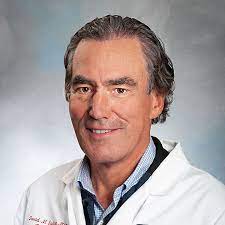
Assistant Professor of Medicine. Institution. Brigham and Women's Hospital
Dr David Systrom
USA
Dr. David M. Systrom is a physician at Brigham and Women's Hospital.
He is also an assistant professor of medicine at Harvard Medical School.
He received his medical degree from Dartmouth Medical School (now known as Geisel School of Medicine).
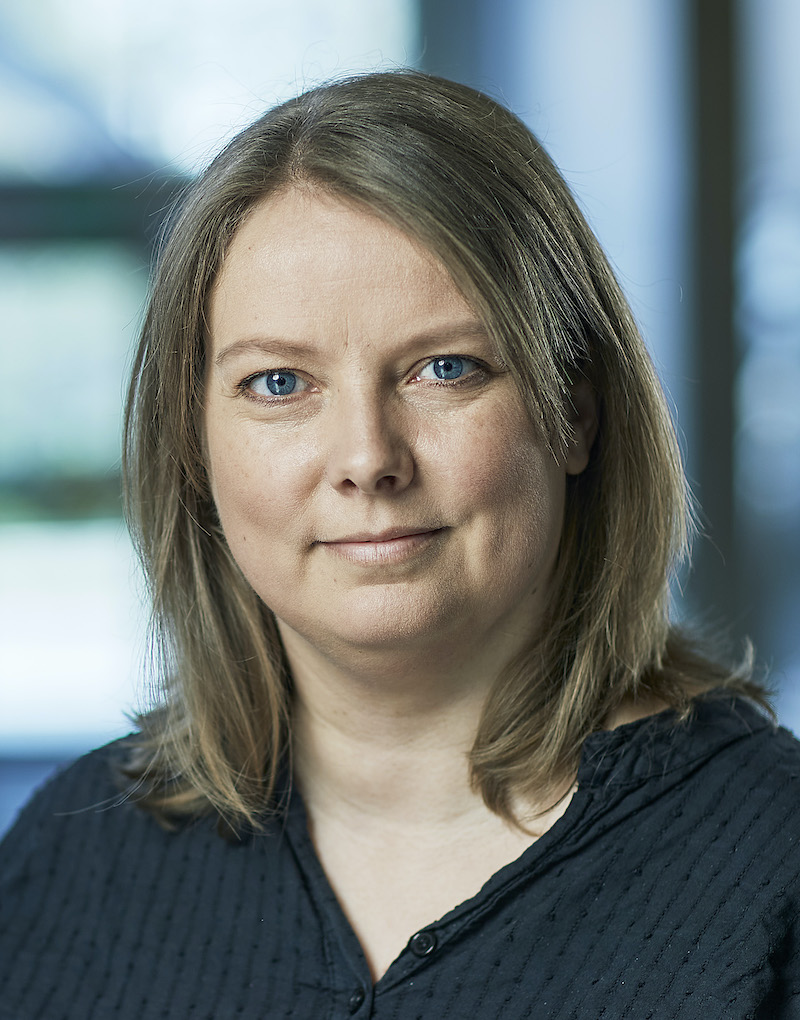
Dr Marte Viken
Department of Medical Genetics,
Oslo University Hospital, Norway
European ME Research Group

Dr Anne Bertolotti
MRC Laboratory of Molecular Biology, Cambridge, UK
Dr. Bertolotti is a world-renowned expert in protein homeostasis, cellular stress responses, and proteasomal degradation mechanisms.
Dr. Bertolotti specialises in how cells detect and respond to misfolded proteins and chronic stress—a process that, if disrupted, could play a role in neurological and immune dysfunction in ME/CFS. Her work on selective inhibition of phosphatases that regulate protein folding stress responses could provide insights into whether similar pathways are dysregulated in ME/CFS patients.
Anne Bertolotti is a renowned French biochemist and cell biologist serving as the Programme Leader at the MRC Laboratory of Molecular Biology (MRC LMB) in Cambridge, UK. In 2022, she was appointed Head of the MRC LMB's Neurobiology Division. Her research focuses on understanding and enhancing cellular defence mechanisms against misfolded proteins, which are a hallmark of various neurological diseases.
Dr Bertolotti's academic journey began with dual Bachelor of Science degrees in biochemistry and plant physiology, followed by a Master of Science degree in cell and molecular biology from the Louis Pasteur University of Strasbourg, France. She earned her PhD from the same university for her discovery of hTAFII68 (now TAF15) while working with Laszlo Tora and Pierre Chambon at the Institut de Génétique et de Biologie Moléculaire et Cellulaire (IGBMC). Her post-doctoral research at the Skirball Institute of Biomolecular Medicine, NYU Medical Center, under David Ron, led to significant discoveries in the mammalian unfolded protein response.
In 2001, Dr Bertolotti became an Inserm Associate Professor at Ecole Normale Supérieure, Paris, and later joined the MRC LMB as a group leader in 2006. Her lab has made groundbreaking contributions to the field, including the discovery of Sephin1, an inhibitor that has shown promise in Phase 1 clinical trials for Charcot-Marie-Tooth disease. Her innovative research aims to boost stress signalling pathways to increase cellular resilience and protect against neurodegenerative diseases.
Dr Bertolotti's work has been widely recognised, earning her the Hooke Medal from the British Society for Cell Biology in 2014 for her contributions to understanding abnormal protein folding. She was also elected an EMBO Young Investigator in 2005 and an EMBO member in 2013. Her lab continues to focus on fundamental cell biological processes with the goal of translating these discoveries into benefits for human health.

Professor Alain Moreau
Université de Montréal / CHU Sainte-Justine, Azrieli Reseach Center, Canada
Dr. Alain Moreau holds a PhD in Microbiology and Immunology from the Université de Montréal,
where he is a full professor at the Faculty of Dentistry (Stomatology) and the Faculty of
Medicine (Biochemistry and Molecular Medicine). He served as Research Director at CHU Sainte-Justine
(2013-2016) and led the Canadian Oral Health Research Network (2016-2022).
Since 2019, he has directed the CIHR-funded ICanCME Research Network on myalgic encephalomyelitis and serves
on the Open Medicine Foundation’s Scientific Advisory Board. An international expert in musculoskeletal genetics,
his work has led to 73 patents.
Dr. Moreau co-founded Inception Therapeutic Inc. to develop diagnostics and treatments
for arthritis and complex diseases.
See Research

Dr Olli Polo
Integrativ Clinic, Stockholm, Sweden p> Dr Olli Polo, MD, PhD, is a Finnish pulmonologist, sleep specialist and physician with expertise in physiology, currently practising at the Integrativ Clinic in Stockholm. Formerly a professor of pulmonology at Tampere University, his clinical and research interests focus on myalgic encephalomyelitis/chronic fatigue syndrome (ME/CFS), with particular attention to sympathetic nervous system dysfunction, circadian rhythm disturbances and tissue hypoxia.
Dr Polo’s work emphasises the role of connective tissue abnormalities, such as Ehlers-Danlos syndrome, as potential contributors to ME/CFS. His clinical approach includes experimental therapies such as low-dose naltrexone, supplemental oxygen, saline, vitamin B12, and dopamine agonists, while advising caution regarding psychiatric medications and certain sleep aids.
He has published extensively on sleep disorders and related conditions and has presented at international conferences. Dr Polo is known for advocating patient-centred care in ME/CFS.
More information
https://www.integrativakliniken.se/about-1
ResearchGate Olli Polo
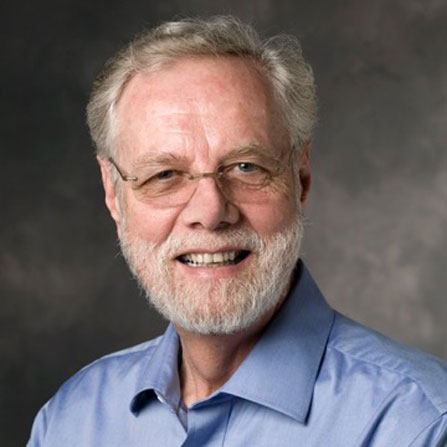
Professor Ronald Davis
Stanford School of Medicine in Stanford Professor of Biochemistry and Genetics at the Stanford School of Medicine in Stanford, California, USA
Ronald W. Davis, Ph.D., is a Professor of Biochemistry and Genetics at the Stanford School of Medicine in Stanford, California.
He is a world leader in the development of biotechnology, especially the development of recombinant DNA and genomic methodologies and their application to biological systems.
At Stanford University, where he is Director of the Stanford Genome Technology Center, Dr. Davis focuses on the interface of nano-fabricated solid state devices and biological systems.
He and his research team also develop novel technologies for the genetic, genomic, and molecular analysis of a wide range of model organisms as well as humans.
The team's focus on practical application of these technologies is setting the standard for clinical genomics.
.-
References

Cindy Boer
Internal Medicine, Genetic Laboratory, Erasmus Medical Centre, Rotterdam, Netherlands
Cindy Boer is a PhD researcher at the Genomics Medicine Center of Erasmus MC, University Medical Center in
Rotterdam. Her work focuses on understanding the genetics and genomics of complex traits and common diseases, with a
particular emphasis on osteoarthritis and related conditions.
She has contributed to several significant studies,
including genome-wide association studies on knee chondrocalcinosis and post-traumatic osteoarthritis of the knee.
Her research aims to translate genetic discoveries into clinical practice, enhancing our understanding of disease
mechanisms and improving patient outcomes.
Additionally, Cindy Boer is involved in research on myalgic encephalomyelitis.
She is part of a project that aims to understand the genetic and biological causes of ME. The research involves analysing
the genes and proteins of ME patients and healthy individuals to identify potential biological mechanisms underlying the
condition. This work uses data from a large population study
to investigate the health data of over 160,000 individuals in the northern Netherlands.
The goal is to discover biological mechanisms that could lead to targeted drug research and improved treatments
for ME patients.
Other Links

Postdoctoral Researcher, Radiology & Nuclear Medicine, University Medical Center Utrecht, Netherlands
Denise Visser
Netherlands
Denise Visser, a researcher at University Medical Center Utrecht, has revealed extensive brain inflammation in her
research. Her work with Neuro-PET imaging has shown significant inflammation throughout the brain in patients with long-term
symptoms after COVID-19, also known as Long COVID. These findings, which demonstrate in vivo neuroinflammation, are crucial
as they provide the first direct evidence of widespread brain damage in living patients who have recovered from COVID-19 Visser,
a researcher at University Medical Center Utrecht, has revealed extensive brain inflammation in her research. Her work with
Neuro-PET imaging has shown significant inflammation throughout the brain in patients with long-term symptoms after COVID-19,
also known as Long COVID. These findings, which demonstrate in vivo neuroinflammation,
are crucial as they provide the first direct evidence of widespread brain damage in living patients who have recovered from
COVID-19.
Further Information:

MRC London Institute of Medical Sciences, UK
Helena Cochemé
UK
Professor Helena Cochemé is a distinguished scientist and Group Head at the MRC Laboratory of Medical Sciences (LMS) at Imperial College London. She also holds the position of Honorary Senior Lecturer at Imperial College London. Her academic journey began with a PhD in Biochemistry, which laid the foundation for her extensive research career.
Professor Cochemé's research focuses on redox signaling and its role in metabolism, disease, and aging. Her work has significantly contributed to the understanding of how redox signaling modulates various biological pathways through post-translational modifications of redox-sensitive thiols on cysteine residues. This research is crucial for unraveling the molecular mechanisms underlying cellular function and dysfunction in response to oxidative, nutritional, and environmental cues.
Throughout her career, Professor Cochemé has published numerous influential papers and has been cited extensively in the scientific community. Her research has explored the challenges of measuring reactive oxygen species (ROS) in vivo and has developed innovative tools and methods to overcome these challenges. Her contributions have advanced the field of mitochondrial bioenergetics and free radical biology, providing valuable insights into the physiological importance of redox signaling in vivo.
Professor Cochemé's leadership in the scientific community is evident through her role as the Head of the Redox
Metabolism Research Group at the LMS. Her lab aims to identify, characterize, and manipulate redox-sensitive targets using a
combination of biochemical, proteomic, and genetic approaches. This multidisciplinary approach allows her team to explore and
validate the role of redox signaling in metabolic diseases and aging, furthering the collective understanding of these complex
biological processes.
Further Information:

Precision Life, UK
Rowan Gardner
Co-founder, PrecisionLife, UK
Rowan has over 30 years of experience working in innovative businesses applying computational methods to life science and
patient data to understand disease and find new medicines and treatments for unmet medical needs.
She is on the board of Digital Health and Care Wales a strategic health authority tasked with the digital transformation of
NHS in Wales, and is responsible for oversight of the digital governance and safety committee.
Rowan holds a Masters in biochemistry from the University of Oxford and played a part in one of the university's first spinouts,
Oxford Molecular Group, when it listed on the London Stock Exchange in 1994. She also collaborated with the pioneering team at
CERN to disseminate the applications to cloud computing frameworks in healthcare and pharmaceutical research.
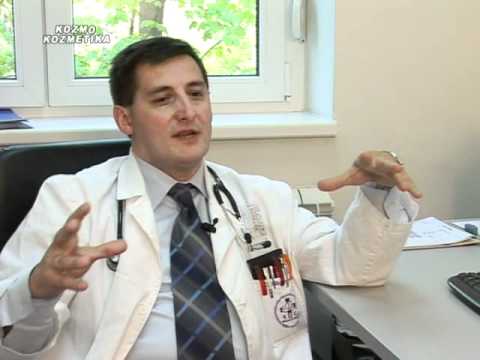
Institute for cardiovascular diseases-Dedinje, Department of Cardiology, Serbia
Branislav Milovanović
Netherlands
PRESENT POSITIONS
- Head of Neurocardiological laboratory,
- President of Serbian Neurocardiological Society
- Full Professor of Internal medicine and Cardiology,Medical faculty,University in Belgrade,Serbia
- Professor of Internal medicine,University of Saransk,Russia
- Noninvasive electrocardiology
- Autonomic nervous system testing
- Syncope
- Chaos theory
- Placebo effect
- Neurocardiology
- Biosignal processing
- Artificial inteligence
- 27.6.1989-22.11.1989.-a clinical doctor at the Clinic for cardiovascular surgery –Dedinje,Belgrade,Universityof Belgrade
- 1989-1997 Specialist of Internal Medicine,University Clinical Center,Zemun,Internal Clinic
- From 1.9.1997.-2004 at CHC B.Kosa,Belgrade,School of Medicine,Belgrade,as a head of Coronary Care Unit
- From 1.3.1997.Assistant Professor at The School of Medicine ,University of Belgrade on Internal Medicine
- From November 2004-2022 Head of Neurocardiological laboratory,CHC Bezanijska Kosa
- From July 2006 Associate professor of Internal medicine at Medical faculty of Belgrade University
- From October 2022 Head of neurocardiological laboratory,Institute for cardiovascular diseases-Dedinje
- From January 2012 Professor of Internal Medicine and Cardiology,Medical faculty,University of Belgrade,Serbia
- From May 2014-2019 Director of Internal Clinic University Clinical Center Bezanijska Kosa
- From January 2016 Member of European Academy of Science and Arts,the leading scientific society in Europe (38 Nobel prize winners)
- 2019-Professor of Internal Medicine,University of Saransk,Russia
References

Vrije Universiteit Amsterdam, Netherlands
tba
Anouk Slaghekke, Netherlands
Anouk Slaghekke is a PhD candidate at Vrije Universiteit Amsterdam (VU Amsterdam), focusing on ME research. Her work is part of the ME Research Programme, which aims to improve the health and quality of life for ME patients by funding biomedical research on the causes, diagnosis, and treatment of ME. The program emphasises collaboration between various research disciplines, international collaboration, and patient participation to ensure that research outcomes are aligned with patient needs.
Anouk's research focuses on understanding the underlying mechanisms of ME, a severe chronic illness characterised by pain, sensitivity to light and noise, concentration and memory problems, and severe fatigue. Her contributions to the ME research field are part of a broader effort to address the significant unmet medical needs of ME patients and enhance their position in society.
The ME Research Programme, overseen by ZonMw, prioritizes the FAIR data principle, ensuring that research data is findable, accessible, interoperable, and reusable. This approach facilitates innovation and the effective use of research data to advance healthcare research.
Anouk Slaghekke's work is instrumental in developing biomedical knowledge on the onset, diagnosis, and treatment of ME, with the goal of improving medical practice and patient outcomes.

Harvard Medical School, Boston, Massachusetts, US
Dr Wenzhong Xiao
Assistant Professor of Surgery (Bioinformatics), Harvard Medical School, Boston, Massachusett
Dr Xiao is Director of the Immuno-Metabolic Computational Center at Massachusetts General Hospital and leads a Computational Genomics Group at the Stanford Genome Technology Center.
His research focuses on developing computational and statistical methods to analyse complex molecular, clinical, and genetic data, with particular emphasis on immune and metabolic diseases. As Co-Director of the Ronald G. Tompkins Harvard ME/CFS Collaboration, he applies these approaches to study myalgic encephalomyelitis/chronic fatigue syndrome (ME/CFS).
Dr Xiao’s work on the Severely Ill Patient Study (SIPS) has identified metabolic and immune abnormalities, rare genetic variants, and potential connections between ME/CFS and neuroimmune pathways, viral triggers, and hormonal signalling. His recent research uses network medicine to explore overlaps between ME/CFS, cognitive disorders, and long COVID, contributing to a better understanding of disease mechanisms and informing
More information - https://researchers.mgh.harvard.edu/profile/13341354/Wenzhong-Xiao
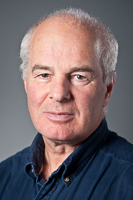
University of Oslo, Norway
Professor Ola Didrik Saugstad
Research Professor at Oslo University Hospital and Adjunct Professor of Neonatology at Northwestern University’s Feinberg School of Medicine in Chicago
Professor Ola Didrik Saugstad, MD, PhD, is a Norwegian paediatrician, neonatologist and neuroscientist renowned for his research on newborn resuscitation and hypoxia. He serves as Research Professor at Oslo University Hospital and Adjunct Professor of Neonatology at Northwestern University’s Feinberg School of Medicine in Chicago.
His landmark work on oxygen use in newborn resuscitation led to revised international guidelines in 2010, replacing pure oxygen with air—a change estimated to save approximately 200,000 lives annually. Saugstad’s expertise spans hypoxia-reoxygenation injury, oxygen radical mechanisms, and perinatal asphyxia, with over 30,000 citations in scientific literature.
In ME/CFS research, Saugstad has collaborated on studies investigating metabolic disturbances, including abnormal lactic acid levels post-exertion and cellular oxygen deficiency. He supports hypotheses linking ME/CFS to immune dysfunction and energy metabolism failure, advocating for specialised biochemical testing to identify biomarkers. Saugstad has endorsed Norwegian-led ME/CFS research as internationally leading, particularly praising subgroup analyses that correlate metabolic patterns with symptom severity.
A former president of the European Association of Perinatal Medicine, he has advised the WHO on child mortality and received the Nordic Medical Prize and the Knight First Class of the Royal Norwegian Order of St. Olav for his contributions to neonatal medicine.
More information - https://ous-research.no/home/pediatricresearch/Group+members/8039

National Centre for Neuroimmunology and Emerging Diseases (NCNED), Australia
Dr Etianne Martini Sasso
Australia
Etianne Martini Sasso is a Research Fellow at the National Centre for Neuroimmunology and Emerging Diseases (NCNED),
Griffith University.
She has recently completed her PhD, focused on the Transient Receptor Potential Melastatin 3 (TRPM3) ion channel in
the pathomechanisms of ME, long COVID, and Gulf War Illness (GWI), exploring therapeutic options to restore
TRPM3 function and improve patient outcomes. She holds a Master’s in Medical Science, and postgraduate studies
in public health
and forensic toxicology and her work experiences include the areas of pathology laboratory.
The National Centre for Neuroimmunology and Emerging Diseases (NCNED) in Australia is dedicated to researching Myalgic Encephalomyelitis/Chronic Fatigue Syndrome and related conditions like long COVID. Led by Professor Sonya Marshall-Gradisnik, the center focuses on identifying biomarkers and understanding the pathomechanisms of these illnesses to improve diagnosis and treatment.
NCNED's recent research has revealed significant overlaps between ME/CFS and long COVID, highlighting similar symptom presentations and health outcomes. The center has pioneered studies on immune cell dysfunctions and their impact on calcium ion channels, which are crucial for cellular functions. Their work aims to develop screening tests and pharmacotherapeutic interventions through clinical trials.

Department of Biomedical Engineering, Washington University St. Louis, USA
Dr. Tomas Paulenda
USA
Dr. Tomas Paulenda is a Postdoctoral Research Associate in the Department of Pathology & Immunology at Washington University School of Medicine in St. Louis. He works in the Artyomov Lab, where he investigates the mechanisms of immune cell regulation by metabolite perturbations in diverse disease contexts.
Dr. Paulenda's research focuses on the intersection of immunology and metabolism, particularly how metabolic pathways influence immune cell function. His recent work has shed light on the role of itaconate, an immunoregulatory metabolite, in modulating immune responses via inhibition of peroxiredoxin 5. This study provides insight into the molecular mechanisms by which itaconate enhances type I interferon secretion and modulates mitochondrial reactive oxygen species in activating macrophages.
Dr. Paulenda employs a combination of high-throughput technologies, including single-cell RNA sequencing, mass spectrometry, and advanced imaging techniques, to study the complex interactions between immune cells and their environment. His work contributes to a deeper understanding of immune responses at a systems level and holds promise for developing more effective treatments for a wide range of immune-related diseases.
Further References:

Department of Biomedical Engineering, Washington University St. Louis, USA
Dr Maxim N. Artyomov
USA
Dr. Maxim N. Artyomov is the Alumni Endowed Professor in the Department of Pathology & Immunology at Washington University in St. Louis. He is also affiliated with the Washington University School of Medicine and holds an adjunct professorship at ITMO University in St. Petersburg, Russia. Dr. Artyomov earned his PhD from the Massachusetts Institute of Technology in 2009 and completed a postdoctoral fellowship at the Broad Institute of MIT & Harvard.
Dr. Artyomov's research lies at the intersection of immunology, systems biology, and bioengineering. His lab focuses on systems immunology, integrating computational and experimental approaches to understand the molecular and metabolic mechanisms that govern immune cell function—particularly in the context of cancer, infections, and autoimmune diseases.
A central theme of his work is uncovering how immune cells such as T cells, macrophages, and dendritic cells reprogram their metabolism in response to environmental cues and immune challenges. His research has notably advanced understanding of the role of metabolites such as itaconate in macrophage-driven inflammation and immunoregulation.
To dissect these complex processes, Dr. Artyomov's lab employs cutting-edge technologies including single-cell RNA sequencing, mass spectrometry, metabolomics, ChIP-sequencing, and advanced imaging. These high-throughput approaches enable a systems-level view of immune responses and the identification of novel therapeutic targets.
His lab collaborates extensively with researchers across immunology, oncology, and bioengineering to bridge basic science and clinical applications. Dr. Artyomov’s contributions have been instrumental in developing new strategies for cancer immunotherapy and enhancing vaccine efficacy. His work continues to shape our understanding of immune system dynamics and holds promise for more effective treatment of immune-mediated diseases.


